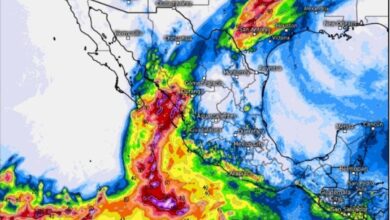Why the head of Kraft Heinz says we have to get used to food being more expensive

People will have to get used to higher food prices.
That is what Miguel Patricio, executive director of the multinational Kraft Heinz, told the BBC.
Patricio announced that the food giant is raising prices in several countries.
Unlike previous years, he assured, inflation is now “Generalized”.
The cost of ingredients like grains and oils has pushed world food prices to a 10-year high, according to the Food and Agriculture Organization of the United Nations.
Kraft Heinz has raised the prices of more than half of its products in the United States, its home market, and Patricio admitted that this is happening elsewhere as well.
“We will raise prices, where necessary, around the world,” he said.
Various factors
During the pandemic, many countries saw the production of raw materials fall, from crops to vegetable oils. Measures to control the virus, as well as the disease, limited production and distribution.
As economies have restarted, the supply of these products has not been able to keep up with the return in demand, which has caused the prices.
Higher wages and energy prices have also added to the cost burden for manufacturers.

Patricio says that this wide range of factors is contributing to the increase in food prices.
“In the UK there is a shortage of truck drivers. In the United States, logistics costs also increased substantially and there is a labor shortage in certain areas of the economy, ”he says.
Patricio says consumers will have to get used to higher food prices given that the world’s population is increasing, while the amount of farmland is not.
Although in the long term, “there is a lot of technology to come that will improve the efficiency of farmers.”
Weight on clients
But not all cost increases should be passed on to consumers, Patricio said. Companies would have to absorb part of the increase.
“I think it is up to us, the industry and the other companies to try to minimize these price increases,” he said.

But big food producers like Kraft Heinz, Nestlé and PepsiCo “will probably have to pass that cost on to consumers,” according to Kona Haque, head of research at produce company ED&F Man.
“Whether it’s corn, sugar, coffee, soy, or palm oil, all of these staple food products have increased,” he said.
“Poor harvests in Brazil, which is one of the world’s largest agricultural exporters, drought in Russia, reduced planting in the United States and reduced storage in China have been combined with more expensive fertilizers, energy and shipping costs, factors that make prices rise, “he said.
Assured that all food producers would be affected and therefore all would raise prices similarly: “Everyone will, which means they probably won’t lose customers.”
This week, PespsiCo warned that it was also facing rising costs on everything from transportation to raw materials, and said prices are likely to rise in early 2022.
Increase in sales
However, in addition to increasing costs, the pandemic helped boost sales of some Kraft Heinz brands, Patricio said, because staying home meant that “people cook a lot more than before.”
Total sales increased 1.6% until US $13 billion in the first half of 2021.
Erin Lash of investment firm Morningstar described the increase as “quite impressive relative to the same pre-pandemic period in 2019,” despite representing a slight slowdown.
The company is also undergoing extensive restructuring under Patricio’s management, involving the sale of some old brands and the purchase of some new brands.
According to Lash, this restructuring was “narrowing its focus and increasing its spending on innovation and marketing,” which would support future sales.
Less plastic
Patricio further said that the firm was also spending significant sums on developing new packaging to meet its goals of reducing plastic waste.
Most of the 650 million ketchup bottles that the company sells each year are made of plastic, for example. But Patricio said the firm was “encouraging” customers to buy glass bottles even though they are less convenient.
“We are working hard, not only in plastic bottles, but in all areas of our brand that have plastic,” he said.
Environmental activists would like to see a reduction in the use of ketchup bags.
However, after facing a sachet shortage during the pandemic as consumers bought more takeout from restaurants, Kraft Heinz has invested in expanding sachet production by 30%.
“Thank God we did it, because now we no longer have that problem [de escasez]”, Says Patricio. But he assures that the company is working on a solution “to reduce the amount of plastic they use.”
You can see the full interview of Miguel Patricio on “Talking Business with Aaron Heslehurst” on BBC World News on Thursday at 07:30
.



